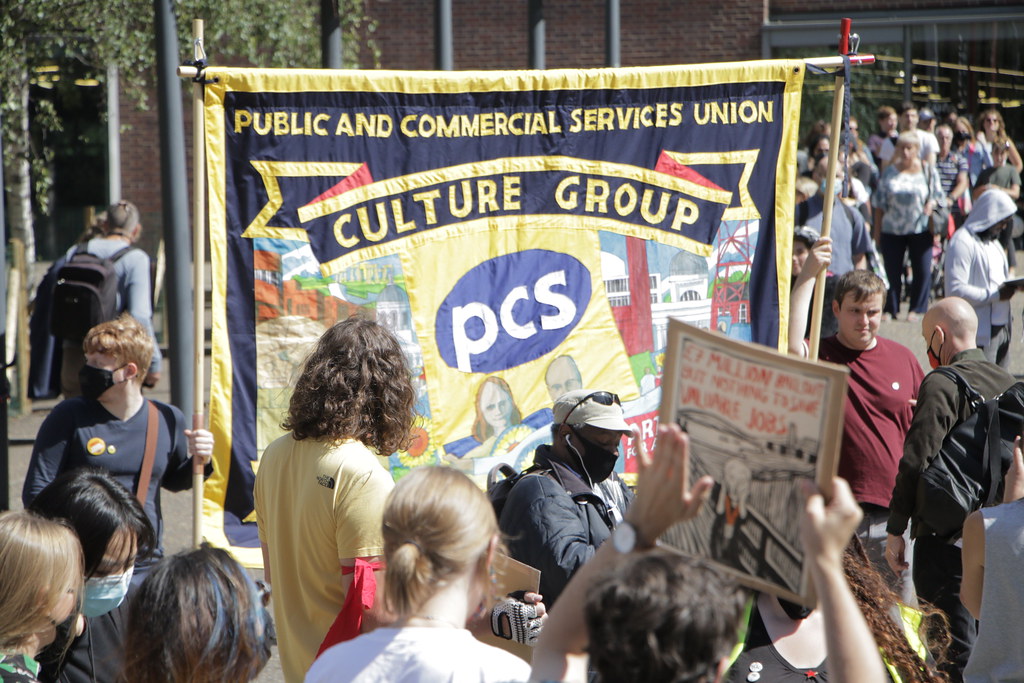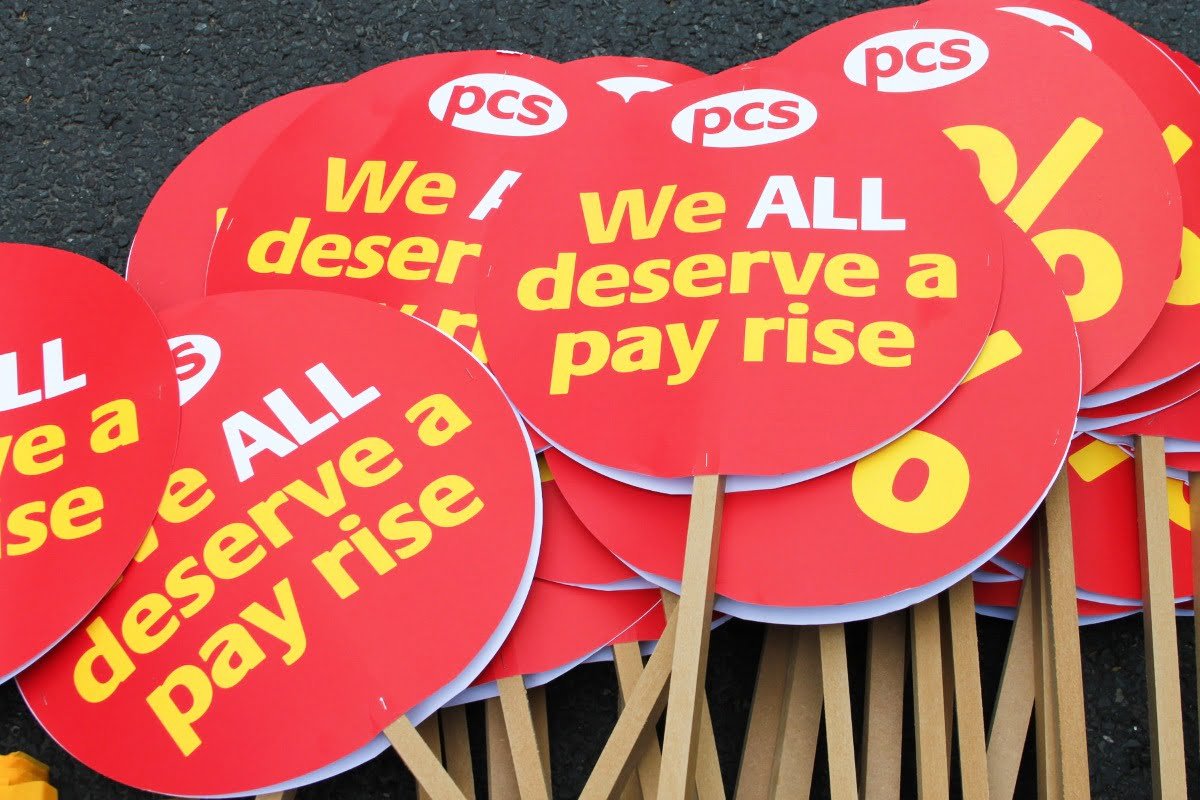PCS members in the public sector have returned a decisive endorsement for the union’s pay campaign, including backing industrial action. The union must seize the opportunity to go on the offensive, in conjunction with other public sector unions.
Over the past five weeks, PCS has asked its members in the public sector to express their views on the union’s stand on pay and pensions through a nationwide consultative ballot.
Members were asked if they would support a demand for a 10% pay rise and for fair pensions, and if they would be prepared to take industrial action if negotiations do not deliver a fair deal.
The result of the ballot could not be clearer – 97.3% of members support the national pay campaign, and 80.7% are willing to take industrial action in support of it.
The ballot had the second highest turnout of any national ballot in the union’s history, at 45.2%. 70,000 members took part in the ballot across 246 separate employer areas. This represents a significant foundation for future campaigns.
Cost of living

This vote should be seen within a wider context of a sharpening class struggle on the industrial front. Workers are facing deteriorating working conditions and stagnating wages, alongside one of the worst cost-of-living crises in modern times.
Not only are food, fuel, and transport costs rising, but workers are also facing increases in both council tax and national insurance. As a result, PCS members have faced a real-term cut of 20% in their living standards over the past decade.
And they are far from alone. Healthcare workers have spent over two years fighting the pandemic on the frontline, whilst also facing increasing workloads and staff shortages. After all this, not only have they seen a decade-long wage freeze, but they also now face the prospect of having to pay for their own COVID lateral flow tests.
While the Tories were happy to clap NHS workers at the peak of the pandemic, when it came to offering them a proper wage rise, they said no without a moment’s hesitation.
Other public service workers in universities, schools, government departments, and transport services are in the same position, facing pay freezes, rising living costs, and increasingly precarious working conditions.
Ruthless employers
The bosses, meanwhile, in the aftermath of the pandemic, are using even more ruthless tactics to guard their profits. The most recent example is the firing of over 800 workers from P&O Ferries.
P&O bosses themselves have admitted they didn’t even bother following existing employment laws, which required them to consult with the unions ahead of any redundancies being announced. Instead, the workers were told of their fate via a pre-recorded video call, and escorted off ships by security guards paid for by the company.
Nor are these vicious tactics something that should only worry members of other unions. PCS members working for the Department for Work and Pensions are currently facing the closure of 42 of their offices, which potentially puts as many as 3,000 workers at risk of redundancy.
Many others face moving to a workplace much further away from where they live, leading to much longer, more expensive commutes.
If this is the kind of ‘thanks’ that we can expect for our efforts during the pandemic, then it’s no wonder this consultative ballot delivered such a big result in favour of strike action.
Build for action

PCS members have shown that they are prepared to take on the employers. It is important that the union now seizes the opportunity to build on this readiness to fight for decent wages and better conditions.
As was correctly noted in a recent blog post by PCS Left Unity, this consultative ballot has given the union vital data it can use to drive up engagement in the event of a full ballot.
The chance to smash past the 50% threshold and give the union a national strike mandate – an enormous potential victory – has never been closer. A concerted effort to do so is the clear next step.
PCS should coordinate its efforts with other public service unions and workers – UCU, Unite, NEU, and the Royal College of Nursing, among many others – in order to build a joint campaign to fight for decent wages and conditions across all public services and for all workers.
A one-day public sector strike as part of this campaign would demonstrate the strength of our class, and show the employers and their Tory friends in government that we are not prepared to beg for crumbs.
The stakes are very high, but this ballot has shown that our members are up for the challenge. PCS, once again, has the opportunity to lead the way in the trade union movement, and set a shining example of how to fight back. We must seize it with both hands.






